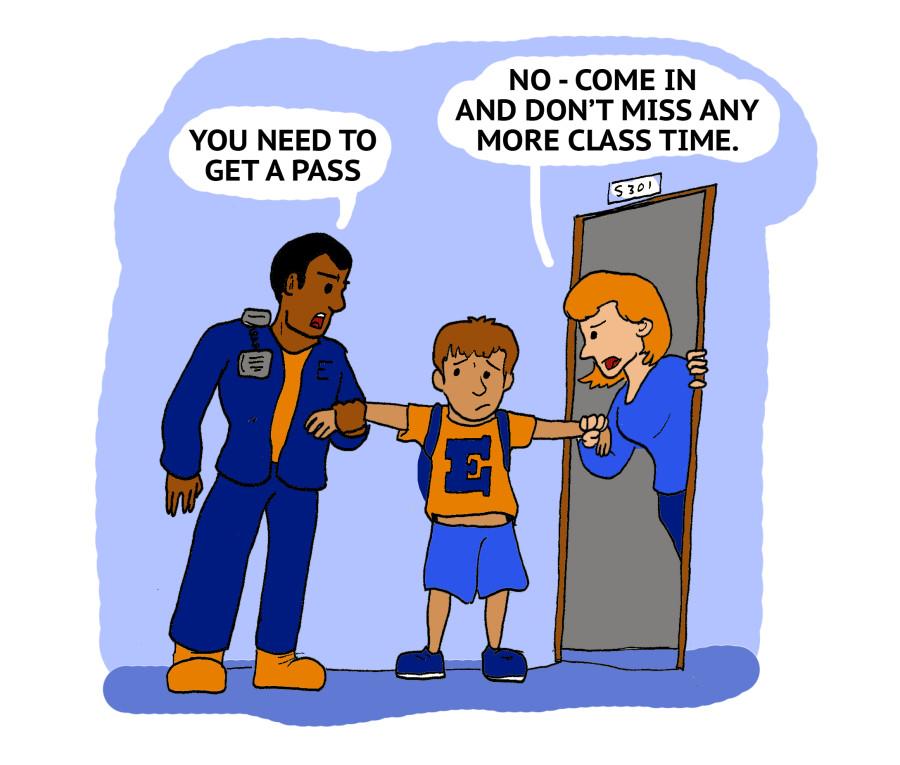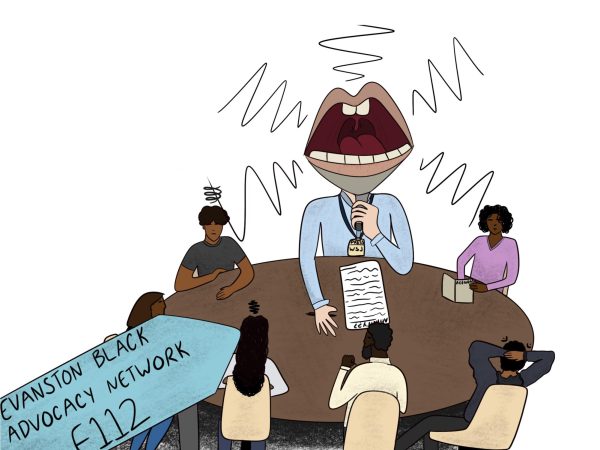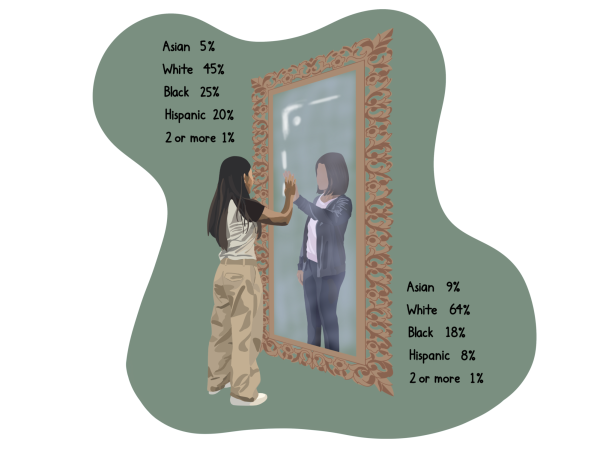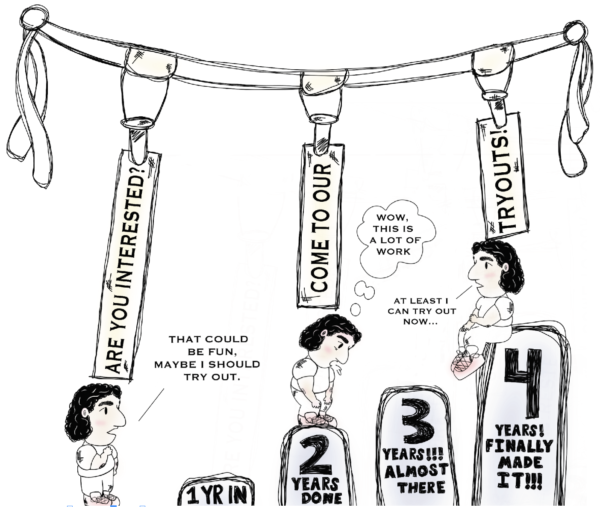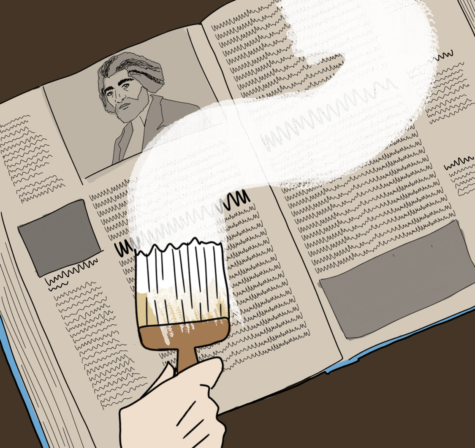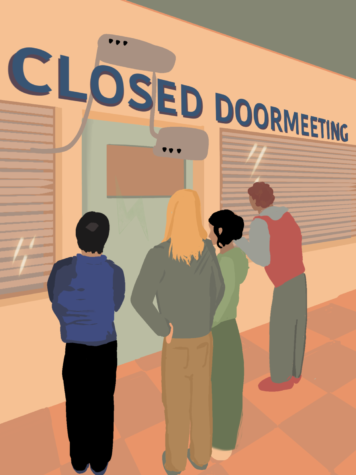Our tardy policy needs to be scrapped
Detentions and tardies should not be associated with one another.
The current policy of receiving one detention per tardy is unreasonable. The punishment for arriving to class a minute or two late should not be to serve a detention.
The process of receiving a tardy pass from safety is too time-consuming and takes away from the time that students could be productively working in class. When a student is late to class, even if its just a minute after the bell, they are held up waiting for a security officer to print a pass, keeping students out of class even longer.
Also, teachers and safety officers aren’t on the same page when it comes to the tardy policy. Safety enforces that all students must get a pass immediately after the bell rings, but many teachers don’t care whether a student has a pass or not.
Other high schools have a much more reasonable policy for tardies. For example, Stevenson’s policy gives students an extended detention for every 10 tardies. This policy makes much more sense because students do not accumulate unnecessary detentions.
It’s important to acknowledge that in the past, our tardy policy was stricter. If a student was tardy, they couldn’t go to class at all. They had to go to detention for the period. Clearly, our current policy is much more tolerable given this fact.
It is also important that students be held accountable for being late. It is a nuisance when students walk into class late because it is disruptive to class productivity.
But let’s be honest, does anyone actually serve detentions? Other than when they’re on social probation, most students don’t serve their detentions. Clearly, the current policy is ineffective from an administrative point of view.
We at the Evanstonian believe a tardy should not equate a detention. Serving a detention is not an equal punishment for tardiness. Instead, it should be up to the teachers to enforce a consequence. If teachers are not concerned about tardies, they can choose not to enforce them. On the other hand, if tardiness becomes a serious issue, teachers can address it on a case by case basis.
Your donation will support the student journalists of the Evanstonian. We are planning a big trip to the Journalism Educators Association conference in Philadelphia in November 2023, and any support will go towards making that trip a reality. Contributions will appear as a charge from SNOSite. Donations are NOT tax-deductible.

